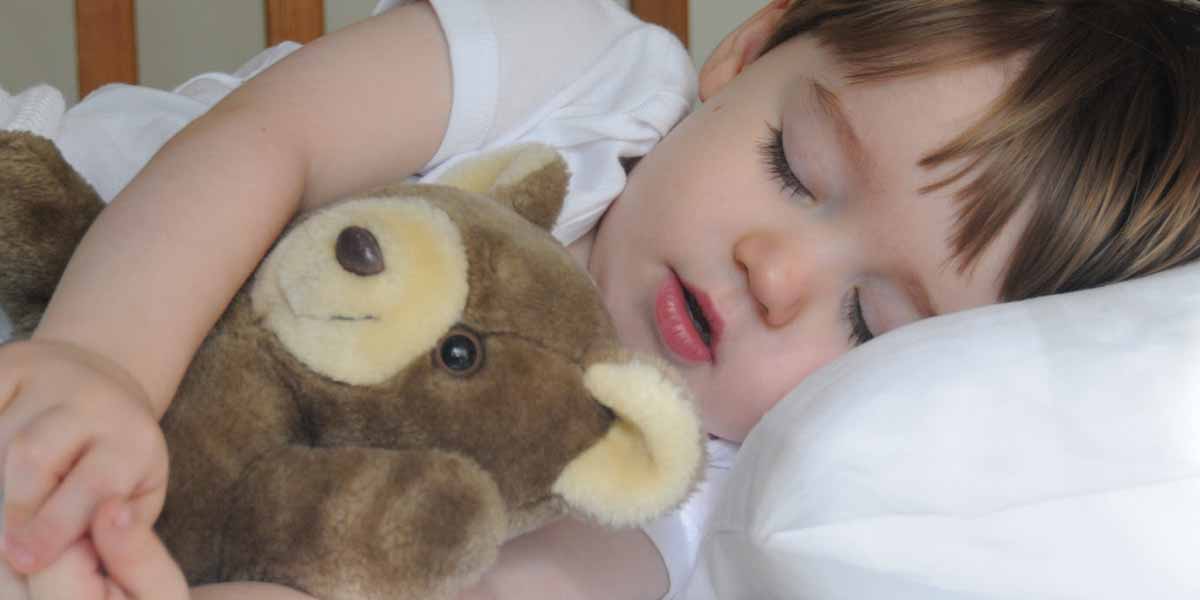Mission accomplished: You’ve just run your first 5K or 10K – that’s quite a feat. Few people are able to run that far. Now, how do you recover effectively to stay in top shape?
Sleep training your baby in five steps
If your baby won’t sleep, you’re probably pretty desperate for some help. Here’s how to get your child — and yourself — some much-needed rest.

My son Sam has never been a good sleeper. He’d wake me as many as five times a night to get his pacifier until he was two years old, leaving me exhausted and haggard by his 6:30 a.m. wake time. Frantic for help, I turned to books, friends and the Internet before he finally, of his own accord, started sleeping through the night. Sort of.
With 25% of children affected by sleep difficulties, according to the Canadian Sleep Society, much has been written about sleep training — and if you’re a sleep-deprived parent, you know why. Getting up night after night to feed or soothe a wailing child can turn perfectly calm, rational parents into bleary-eyed, irritable zombies. In the search for eight hours of uninterrupted sleep, many anxious parents have turned to books such as:
- Richard Ferber’s Solve your child’s sleep problems, which recommends leaving a baby to cry for intervals of decreasing length (the “ferberization” method)
- Marc Weissbluth’s Healthy Sleeping Habits, Happy Child, which advocates allowing babies’ internal clocks to guide their sleep patterns
- Harvey Karp’s The happiest baby on the block, which suggests parents recreate a womb-like environment for their child, involving swaddling, shushing and rocking.
Good sleep hygiene is critical
But establishing good sleep habits (called “sleep hygiene” by the professionals) can be a challenging, time-consuming and sometimes frustrating process for both you and your child. “When you’re sleep-deprived, it’s so hard to see the light at the end of the tunnel,” says Shannon Mills, a pediatric occupational therapist in Barrie, Ontario who creates customized sleep plans for clients across the province. If you and your child aren’t sleeping, you may feel desperate for quick results. And though most families see progress right away, says Mills, complete sleep success may be some time coming. It all comes down to things like the baby’s temperament and the parents’ commitment levels. “Sometimes it takes a couple of days, and sometimes a couple of months,” she says.
That’s because babies and toddlers can often get on track, only to revert to their old habits if they are ill, teething, travelling or having developmental spurts, such as mastering crawling. But on the upside, if parents implement and follow certain practices, they can usually get even their most sleep-challenged children to sleep through the night, says Mills. Here’s how:
- Early to bed. Many sleep experts suggest moving up your baby’s bedtime each night by 15 to 20 minutes until you find the time at which your baby or child will easily fall asleep. It may sound counterintuitive, but it prevents babies from getting overtired and fighting sleep.
- Create a sense of routine. This will give your baby cues to go to sleep. Such a routine may include a bath, a story and then putting your baby to bed. You can start this as soon as your baby is a few months old.
- Look for clues. You may know your baby is sleepy if you spot lulls in activity, yawning, eye-rubbing and staring into space. If you wait too long, your baby will become overtired, stress hormones will increase and he or she will fight sleep, Mills says.
- Avoid overstimulating your baby. Ideally, keep the TV off, skip large social gatherings and avoid rowdy playtimes with older siblings in the hour before bedtime. And take it slow. “A lot of times parents rush through the bedtime routine,” says Mills. “It’s so important to get us to a calm state.”
- Try to avoid feeding your baby to sleep. A bedtime feeding can make your baby expect food in order to go to sleep.
The critical thing, experts say, is to not give up. Sleep training can have setbacks, but sticking to a routine — and to your resolve — can help you persevere. “There are going to be good nights and you are going to have bad nights,” says Mills. But as I discovered, the good will eventually outnumber the bad.
These three hints may help you get your baby to sleep:
- Keep it simple. Mobiles, crib toys and projectors don’t soothe – they stimulate.
- Get buy-in from all caregivers. Everyone needs to follow the same sleep hygiene routines.
- Address one issue at a time. Start with a bedtime routine, then take on midnight feedings, for example.


